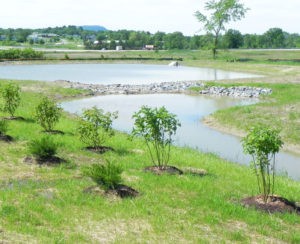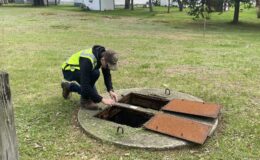In June 2017 the State Stormwater Program issued a new Vermont Stormwater Management Manual, a guidance document for designing and permitting stormwater treatment systems.

In March 2019, the State adopted a new chapter of the Environmental Protection Rule, Chapter 22 Stormwater Permitting Rule. While this new Rule does not affect the selection or design of stormwater treatment practices, it does increase the number of properties across Vermont which will require stormwater permitting. While much of the change is legal language, there are three major changes that we want our clients to be aware of:
- Introduction of the 3-Acre Rule
- Notice that the operational permit threshold will decrease to ½ acre starting in 2022
- An additional section for “Phased Development and Circumvention”
What does this mean?
- The introduction of the 3-Acre Rule means that a stormwater general permit will be required for all “three-acre sites” – existing properties with three or more acres of impervious area (places where water can’t soak into the ground, like roads, parking lots and rooftops) which do not have stormwater permitting based on the 2002 Stormwater Management Manual. This means that sites with more than 3-acres of impervious will no longer “grandfathered” and will be required to have stormwater permitting and treatment even if no site changes are proposed. All sites within the Lake Champlain and Lake Memphremagog watershed are required to comply with the rule by 2023 and all other sites in Vermont are required to comply by 2033. Stay tuned for more info from us on this topic and how TCE can help.
- Under the old rule, all sites which proposed one (1) or more acres of impervious surface are required to have operational State stormwater permitting. This has been the permitting threshold for a number of years; however, starting July 1, 2022, the area has decreased. All development that creates more than ½ acre of impervious will be required to have operational State stormwater permitting.
- Finally, the last update simply means that the State has tightened the rules regarding phased development projects. It is now required that stormwater permitting be mandatory throughout each development phase for projects with a larger “common plan of development”.
 TCE is happy to be your stormwater permitting experts! If you have a question, don’t hesitate to get in touch with Andrea at Andrea.Dotolo @ tcevt.com or (802) 879-6331 x127
TCE is happy to be your stormwater permitting experts! If you have a question, don’t hesitate to get in touch with Andrea at Andrea.Dotolo @ tcevt.com or (802) 879-6331 x127



